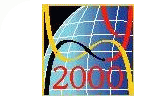|
|

|

|

|
|
Education 1) Models for the Education of Future School Teachers
- ANDREW ADLER, Department of Mathematics, University of British Columbia, Vancouver
British Columbia
A course on making and presenting problems
-
For several years UBC faculty and students have been giving mathematics
problems workshops in the schools. For the past two years there has
been a course based on the workshop program. We describe this course
and the problems it has generated.
- BRADD HART AND ERIC MULLER, Fields and Brock
To be announced
-
- KATHY HEINRICH, University of Regina, Regina, Saskatchewan S4S 0A2
But the students won't know I hate math
-
This statement was made to me several years ago by a student in
``Mathematics for ELementary Teachers'', when I asked her what impact
she thought her feelings about math would have on her students. On the
positive side, she didn't want her students to feel as she did about
math. But how would this be possible unless she and the rest of my
students could overcome their fear and hatred and, dare I say it, come
to find some enjoyment in mathematics.
I last taught the class in the Fall of 1998 and in this presentation
will talk about the students, their backgrounds, the course and the
activities we undertook to try to see math as more than calculations
and algebra, to understand what mathematics might encompass, to learn
new ideas and to find some enjoyment in the material-and failing that
at least make some peace with the subject.
- DAVID HENDERSON, Cornell University, Malott Hall, Ithaca, New York 14853-4201, USA
Teachers as mathematicians-mathematicians as teachers
-
In my presentation I will stress that teachers must experience being
creative mathematicians and that university mathematicians should assist
teachers to gain this experience. I will also stress that teachers and
university mathematicians can learn from each other both about teaching
and about mathematics. I will give as many examples as I have time
for.
- BERNARD HODGSON, Département de mathematiques, Université Laval,
Québec G1K 7P4
Specific mathematics courses in teacher education: some examples for
prospective primary and secondary teachers
-
I have been involved over the years in various mathematics courses
offered by my department to prospective teachers. Future primary
school teachers must take at Université Laval two mathematics courses
specific to them; it must be stressed here that it is rather unusual
(at least in Québec) to have these students take mathematics
courses-given by mathematicians! In the case of secondary school
teachers, some of their mathematics courses are common to other groups
(vg mathematics majors or engineers) while a substantial number of
courses (six at the moment at Université Laval) have been built
specifically for them. Many of these courses were recently created in
the context of a reform of the preparation of secondary school teachers
implemented in Québec universities in 1994.
I will discuss in my presentation some general aspects of the education
of mathematics teachers in Québec. I will also give examples of the
kind of topics we work with them, selected from both our courses for
primary and secondary teachers.
- ANDY LIU, University of Alberta, Edmonton, Alberta T6G 2G1
Math fair
-
This talk describes a Math Fair and its integration into a course for
students in Elementary Education.
- MIROSLAV LOVRIC, Department of Mathematics and Statistics, McMaster University
Hamilton, Ontario L8S 4K1
``Teaching mathematics'' course at Mcmaster university-an
innovative attempt at improving quality of teaching
-
My new course, ``Teaching Mathematics,'' is an attempt at improving
the quality of instruction delivered by undergraduate
teaching assistants.
A group of 22 undergraduate students was involved-they enrolled in
the course and also worked as teaching assistants for a first-year
calculus course.
Several students stated that ``teaching mathematics as an option for
future profession'' was the reason for joining the course.
I will give background information on the project, and will discuss
various issues, such as
* improvement of written and oral communications skills
* identification of elements that constitute a good teaching practice
* introduction to theoretical aspects of teaching
* practical experience
* opportunity of constant monitoring of students' work
Web page
http://icarus.math.mcmaster.ca/ projects/2u3.html
provides additional information.
Aware of the benefits and success of the project, we are thinking of
implementing similar mechanisms in other programmes and faculties at
McMaster University. Large amount of information on various aspects of
the project has been obtained through an independent survey. I will
give a brief report on it.
- PAT ROGERS AND WALTER WHITELEY, Department of Mathematics and Statistics, York University, York,
Ontario
Some current mathematics courses for teachers
-
For several decades, York University has supported programs and courses
in mathematics for pre-service and in-service teachers. Key items in this
support currently include:
(i) an MA in Mathematics for Teachers: a part-time, course-based
program with full courses running fall-winter and summer for teachers
of mathematics (who may not have mathematics degrees);
(ii) a sequence of two half courses for future K-8 teachers (not taking
mathematics as a major or minor) that focuses on the nature
of mathematical enquiry and models a teaching approach
that emphasizes process over product, and develops students'
autonomy and communication skills through investigations;
(iii) a fourth year course, Topics in Mathematics Education,
designed to introduce majors to the key debates and curricular
changes in mathematics education from a mathematician's
point of view and to provides students with opportunities for
critical reflection on teaching and learning mathematics;
(iv) a full year geometry course which integrates a modern
approach to geometries with a discussions of the teaching and
learning of geometry, group work, hands on exploration,
dynamic geometry software, and the use of visuals
and writing in presenting mathematics;
(v) a collaborative professional development programme, with the Faculty
of Education and a local school board, which brings together pre-service
teacher candidates and participating host teachers in a mathematics course
(from ii) and their practicum placements.
We will describe our current programmes and courses as well as further
plans to work with the Graduate programme in Education to support
in-service teachers.
- HARLEY WESTON, Department of Mathematics and Statistics, University
of Regina, Regina Saskatchewan S4S 0A2
Mathematics every teacher should know
-
At the University of Regina, faculty in the Department of Mathematics
and Statistics and the Faculty of Education have worked together to
design mathematics course for students in the elementary education
program. One course in particular, Math 101, is required of all
education students in the elementary program. In the spring of 1998
work began on implementing an online version of Math 101 and in the
fall of 1999 a section of Math 101 was offered for the first time over
the World Wide Web. This presentation will contain an overview the
content of Math 101 and some reflections on the experience of offering
it online.
|
|



